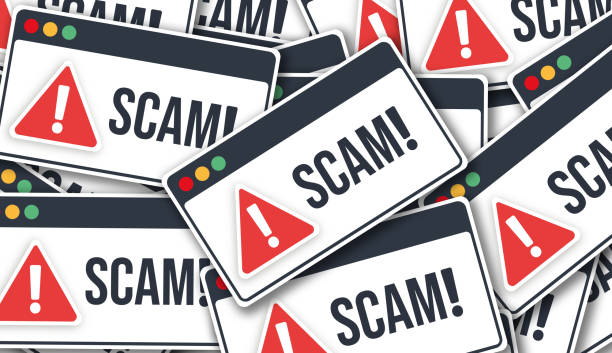In today’s digital age, scams and fraudulent activities have found their way into our smartphones through fake text messages. These deceptive texts often impersonate legitimate institutions, leaving unsuspecting individuals vulnerable to financial loss and identity theft. In this detailed guide, we will delve deep into the world of us9514961195221 – Scam fake text messages, shedding light on the tactics scammers use, how to identify these messages, and most importantly, how to protect yourself from falling prey to their schemes.
What Are us9514961195221 – Scam Fake Text Messages?
Fake text messages, often referred to as “us9514961195221 – Scam fake text messages,” are a type of phishing attempt where scammers impersonate reputable organizations or government agencies. These messages are designed to trick recipients into divulging personal information, clicking malicious links, or even sending money.
Anatomy of a Scam Text Message
A typical us9514961195221 – Scam fake text message consists of several elements:
- Sender Information: Scammers often use names or numbers that appear legitimate, making it challenging to identify them immediately.
- Urgent Language: The message usually conveys a sense of urgency, pressuring the recipient to act quickly.
- Phishing Links: Scam texts may contain links that lead to fake websites, designed to steal your information.
- Requests for Information: Scammers may ask for personal or financial information, such as Social Security numbers or credit card details.
The Rise of Scam Text Messages
As technology advances, so do the tactics of scammers. The prevalence of us9514961195221 – Scam fake text messages has grown significantly in recent years, with scammers becoming increasingly sophisticated in their approaches.
How to Spot us9514961195221 – Scam Fake Text Messages
Spotting a scam text message can be challenging, but there are telltale signs to watch out for. Here’s how to identify them:
- Check the Sender: Verify the sender’s identity. Legitimate organizations often have official phone numbers or email addresses.
- Beware of Urgency: Scammers create a sense of urgency to make you act without thinking. Take a moment to evaluate the situation.
- Inspect Links: Hover over links without clicking to see where they lead. Avoid clicking on suspicious URLs.
- Never Share Personal Information: Legitimate entities will never ask for sensitive information via text message.
Protecting Yourself from Scam Text Messages
Now that you know how to identify scam text messages let’s explore how to protect yourself effectively:
- Use Anti-Phishing Software: Install reputable anti-phishing software on your smartphone to detect and block scam messages.
- Enable Two-Factor Authentication: Enable two-factor authentication for your online accounts to add an extra layer of security.
- Educate Yourself: Stay informed about the latest scams and phishing techniques to recognize potential threats.
- Report Scam Texts: Report suspicious text messages to your mobile carrier and the Federal Trade Commission (FTC).
FAQs about us9514961195221 – Scam Fake Text Messages
1. Are scam text messages illegal?
Scam text messages are indeed illegal. They violate various laws related to fraud, identity theft, and consumer protection. Reporting such messages is crucial in helping law enforcement agencies track down and prosecute scammers.
2. How do scammers obtain my phone number?
Scammers can obtain your phone number through various means, including purchasing lists from data brokers, using software to generate random numbers, or even through data breaches.
3. Can I get my money back if I fall for a scam text?
Recovering money lost to scam text messages can be challenging. However, if you act quickly, you may be able to dispute unauthorized charges with your bank or credit card company.
4. Are there any government agencies that send text messages?
Yes, some government agencies send text messages for official purposes. However, they will never request sensitive information like Social Security numbers or payment details via text.
5. What should I do if I receive a scam text message?
If you receive a scam text message, do not respond or click any links. Instead, report it to your mobile carrier and the FTC. You can also block the sender’s number.
6. How can I educate my family and friends about scam text messages?
Share information about scam text messages with your loved ones. Encourage them to be cautious, verify sender information, and report any suspicious messages.
Conclusion
In the digital age, staying safe from scams like us9514961195221 – Scam fake text messages requires vigilance and awareness. By educating yourself, being cautious, and promptly reporting suspicious messages, you can protect yourself and your loved ones from falling victim to these deceptive schemes.
Remember, knowledge is your best defense against scammers in the world of us9514961195221 – Scam fake text messages.





Average Rating